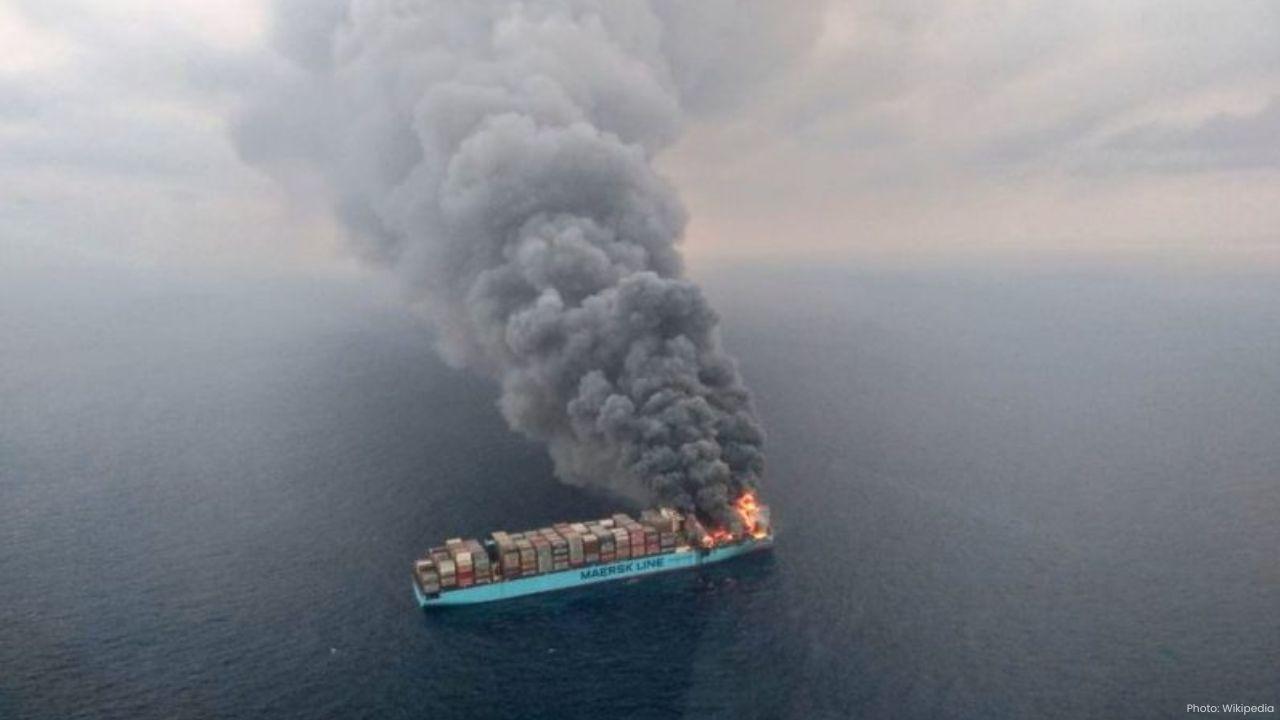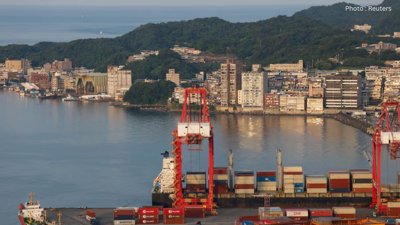
Post by : Meena Rani
The World Shipping Council (WSC) has launched a powerful new global programme designed to prevent ship fires caused by wrongly declared or hidden dangerous goods. Fires at sea are among the most serious risks faced by shipping companies, and this programme aims to make ocean trade much safer for everyone involved.
This initiative comes at a time when container ships are getting larger and carrying more cargo than ever before. With millions of containers moving across oceans daily, even a small mistake in declaring cargo can lead to a massive fire on board. Such fires not only endanger the lives of crew members but also destroy valuable goods, damage the ship, and pollute the environment.
Why the Programme Was Needed
Shipping is the lifeline of global trade, carrying around 90 percent of goods that people use every day. From clothes and electronics to food and raw materials, most items are transported by sea. But this system faces hidden dangers. Many products can catch fire, explode, or leak harmful chemicals if not stored or handled properly.
International law already requires that shippers clearly declare dangerous goods when sending them. However, sometimes this does not happen. Some shippers misdeclare cargo — whether intentionally or unintentionally — to save time or money. When dangerous cargo is hidden or wrongly described, it puts the entire ship and its crew at risk.
According to insurance reports, more than one quarter of all ship-fire accidents are linked to dangerous goods that were either undeclared or wrongly declared. This shows how urgent the problem is.
Key Features of the Safety Programme
The new Cargo Safety Programme by WSC focuses on four important areas:
Smarter Cargo Screening with AI
The programme will use a modern tool created by the National Cargo Bureau. This tool is powered by Artificial Intelligence (AI). It can scan millions of shipping bookings instantly and identify unusual signs that suggest a shipment might be at risk.
For example, if a cargo booking has strange descriptions, suspicious trade patterns, or keywords linked with dangerous goods, the system will flag it. Once flagged, those shipments can be checked more carefully. In some cases, experts will physically open the containers to inspect what is inside.
This AI-based system is expected to make a huge difference because human eyes alone cannot review millions of bookings quickly. By catching risks early, accidents can be prevented before ships even leave port.
Standard Rules for Inspection
Another big step in this programme is creating common inspection standards for all shipping companies that take part. This means there will be one set of clear rules on how to check suspicious cargo. It removes confusion and ensures that every company follows the same safety measures.
Additionally, when something goes wrong, the programme has a system for feedback. The lessons learned from each incident will be shared and used to improve safety rules. This way, the industry can keep learning and getting better.
Industry-Wide Participation
The programme is not limited to just a few companies. At launch, shipping companies that carry more than 70 percent of the world’s containers have already joined. That shows strong global support.
By having most of the large carriers involved, the programme will have a much bigger impact. Dangerous cargoes will be caught no matter which big shipping company they are sent with.
Continuous Improvement
The WSC has made it clear that this programme will not remain static. It will grow and change with time. As technology improves and new risks appear, the AI screening tools, inspection methods, and safety standards will also be updated.
This approach ensures that the programme stays relevant and keeps pace with the changing world of global trade.
Why Ship Fires Are So Serious
Fires on ships are among the hardest accidents to control. When a fire breaks out in the middle of the ocean, help is far away. Crews often face great difficulty in putting out the flames, especially if the fire spreads across containers stacked tightly together.
Some dangerous goods, like chemicals or batteries, can explode or reignite even after water is poured on them. In recent years, ship fires have caused huge losses worth billions of dollars, damaged ports, and put seafarers’ lives in danger.
By preventing such incidents before ships set sail, the new safety programme could save lives, money, and the environment.
A Shared Responsibility
While the programme is being led by WSC, it is not just the shipping companies who are responsible for safety. Exporters, importers, freight forwarders, and even port authorities all play a role.
Exporters must honestly declare what they are shipping.
Freight forwarders should ensure paperwork is correct.
Ports need to cooperate in inspections.
Carriers must follow the agreed safety standards.
Only when all sides work together can the risks be fully reduced.
The Cargo Safety Programme is not just about avoiding ship fires. It is also about creating a culture of safety in the shipping industry. With millions of containers moving every day, safety cannot be left to chance.
By using technology, global cooperation, and continuous improvement, this programme sets a strong foundation for safer oceans. It shows the shipping industry’s commitment to protecting crews, ships, cargo, and the environment.
The launch of the Cargo Safety Programme marks a new era in maritime safety. By targeting the problem of misdeclared and undeclared dangerous goods, the programme directly addresses one of the biggest causes of ship fires.
With AI screening tools, unified inspection rules, and support from most of the global shipping industry, it has the power to make international trade safer and more reliable. Over time, as the programme grows, it will not only save lives but also build stronger trust in global shipping.
For the millions of people who depend on shipping for daily goods, this step is a promise that safety at sea will always remain a top priority.
cargo safety, ship fires, dangerous goods, shipping safety programme










Advances in Aerospace Technology and Commercial Aviation Recovery
Insights into breakthrough aerospace technologies and commercial aviation’s recovery amid 2025 chall

Defense Modernization and Strategic Spending Trends
Explore key trends in global defense modernization and strategic military spending shaping 2025 secu

Tens of Thousands Protest in Serbia on Anniversary of Deadly Roof Collapse
Tens of thousands in Novi Sad mark a year since a deadly station roof collapse that killed 16, prote

Canada PM Carney Apologizes to Trump Over Controversial Reagan Anti-Tariff Ad
Canadian PM Mark Carney apologized to President Trump over an Ontario anti-tariff ad quoting Reagan,

The ad that stirred a hornets nest, and made Canadian PM Carney say sorry to Trump
Canadian PM Mark Carney apologizes to US President Trump after a tariff-related ad causes diplomatic

Bengaluru-Mumbai Superfast Train Approved After 30-Year Wait
Railways approves new superfast train connecting Bengaluru and Mumbai, ending a 30-year demand, easi